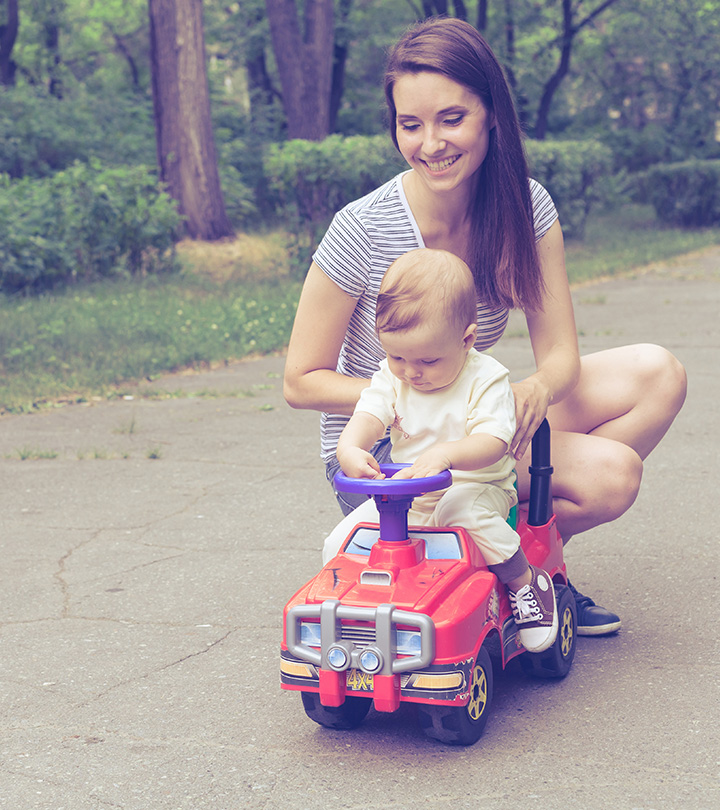
Image: Shutterstock
Parenting can be tricky, and sometimes we make mistakes without even realizing it. When we ignore how our kids feel or keep criticizing them, it can make them feel upset and angry. But it’s okay! We can fix it by being nicer, listening to them, and cheering them on when they do good things. In this article, we have discussed parenting methods that can make your kids aggressive and have also focused on ways to address them. Read on to know more!
Parenting Mistakes That Can Make Your Kid Aggressive
1. Overlooking Emotional Validation
When you brush aside their emotions with a casual “You’ll be fine,” or “Stop crying,” it sends a message that their feelings aren’t valid. Unrecognized emotions tend to brew frustration and anger in kids who feel unheard.
2. Resorting To Constant Criticism
Offering feedback is essential, but a barrage of constant criticism can wound a child’s self-worth. When every action is met with disapproval, it chips away at their confidence, leading to defiance and hostility.
3. Modeling Aggressive Behavior
Image: Shutterstock
Children are like sponges; they absorb behaviors from their surroundings. If they witness frequent displays of anger or aggression in their parents, it becomes normalized. Consequently, they might mimic these behaviors in their own interactions.
4. Ignoring The Power Of Communication
A lack of open communication channels stifles a child’s ability to express themselves. When they feel unable to communicate their needs or concerns, it often results in pent-up frustration that manifests as aggression.
5. Punishment Over Guidance
Frequent use of punitive measures without guiding them through their mistakes can breed resentment and defiance. Instead of understanding their actions, children may feel unfairly punished, fostering a rebellious attitude.
6. Neglecting Boundaries And Consistency
Image: Shutterstock
Inconsistent rules and blurred boundaries confuse children. When expectations constantly shift, it leads to confusion and frustration, potentially triggering aggressive behavior as they seek clarity in their environment.
7. Giving Harsh Punishments
Sometimes, when we punish our kids too harshly for their mistakes, it can make them feel really bad. This might make them more likely to get angry or lash out because they feel unfairly treated.
8. Lack Of Positive Reinforcement
Focusing solely on pointing out flaws or mistakes neglects acknowledging their positive efforts. Without praise or recognition for their good behavior, children might resort to negative means to seek attention or validation.
9. Reacting Rudely To Their Aggression
Image: Shutterstock
When kids get angry or aggressive, if we respond with more anger or rudeness, it can make the situation worse. It’s tough, but staying calm and talking things through can help them understand their feelings better.
10. Disregarding Individuality
Each child is unique, with distinct needs and personalities. Ignoring these individualities and imposing one-size-fits-all approaches might alienate them, causing resentment and, subsequently, aggressive tendencies.
11. Comparing Them Constantly
When we always compare our kids to others, saying things like “Why can’t you be more like…” it can make them feel like they’re not good enough. This might build up frustration or resentment inside them.
12. Not Allowing Them To Make Choices
Image: Shutterstock
If we always decide everything for our kids without giving them a chance to make choices, it might make them feel powerless. This lack of control could lead to outbursts of anger or frustration.
Nurturing A Path Of Positivity And Understanding
Acknowledging these mistakes isn’t about blaming yourself; it’s about being mindful and evolving for the betterment of your child. Here’s how you can steer toward a more nurturing approach:
1. Cultivate Emotional Awareness
Create an environment where emotions are recognized and embraced. Encourage dialogue about feelings, fostering emotional intelligence and reducing the likelihood of emotional outbursts.
2. Embrace Constructive Feedback
Shift the focus from constant criticism to constructive feedback. Encourage and praise their efforts, guiding them through mistakes rather than merely pointing them out.
3. Model Healthy Behavior
Become the role model your child deserves. Display patience, empathy, and healthy conflict resolution in your interactions, setting a positive example for them to follow.
4. Establish Clear And Consistent Boundaries
Image: Shutterstock
Set clear expectations and rules, ensuring consistency in your approach. This provides stability and understanding, reducing confusion and potential triggers for aggressive behavior.
5. Encourage Empathy And Understanding
Teach the value of empathy by promoting understanding of others’ feelings and perspectives. This cultivates emotional intelligence, aiding in managing their emotions and interactions.
6. Foster A Culture Of Positive Reinforcement
Acknowledge and celebrate their achievements and positive behavior. This reinforces their self-worth and encourages them to seek validation through constructive means.
7. Allow Natural Consequences
Image: Shutterstock
Let them experience the outcomes of their actions within safe boundaries. This helps them understand the impact of their behavior, fostering responsibility and accountability.
8. Celebrate Individuality
Embrace their uniqueness and tailor your approach to their specific needs and personalities. Understanding and respecting their individuality fosters a deeper connection and trust.
Parenting isn’t about perfection; it’s a journey of learning and growth. By recognizing and rectifying these common mistakes, you can pave the way for a nurturing positive environment. Remember, it’s never too late to make a positive change and create a brighter, harmonious future for your child.


















